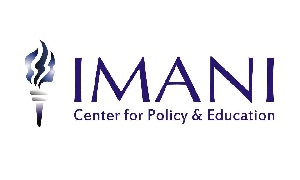Once again, we have crafted 38 districts out of existing 216 districts, but the reasons are not rooted in science.
I wonder why we never learn. It has become a political ritual for politicians to chop existing constituencies into new districts as if the ghosts of European powers dividing Africa into parts like trophies after hunting as occurred between 1881-1914 reside in them. We have scrambled and partitioned the country into further puzzles occupying large swathes of nothingness and somehow believe by some magic development will follow.
IMANI will be publishing a well-researched study on this subject in the coming months. Meanwhile an IMANI PhD fellow and his colleague published a paper on the subject in 2016 and suggested thus;
The paper titled "District Creation in Ghana: A Political Expedience or Poverty Alleviation Mechanism?"
1. Ghana’s decentralisation with respect to the creation of districts as a tool for strengthening democracy, fostering local development and subsequent poverty reduction (Republic of Ghana, 1992; 1993) is marred by nothing more than political convenience (Ayee, 2013).
2. There is scant evidence that service delivery and poverty indicators have improved as a result of decentralized governance (Cabral, 2011). Its pro-poor hypothesis is flawed at best and elusive at worst to the good governance and efficiency proposition. There are currently 216 decentralized local authorities in Ghana. The number of authorities created since the inception of decentralisation in 1988 to date has increased by 94.4%. As much as this brings decision making closer to its subjects (Hemdi, 2014), what is overlooked are the poverty traps laid in the quest for a more inclusive and effective governance.
3. Fragmentation leads to governance efficiency through competition (Ostrom, Tiebout & Warren, 1961; Ostrom, 1998). Conversely, it can also sustain and exacerbate territorial inequality if not complemented with requisite resource endowments and targeted transfers (Von Braun & Grote, 2000). Such is the bane of Ghana’s decentralisation; good in reaching out but less so in translating into poverty reduction.
4. There are studies regarding the correlation of decentralisation (administrative and fiscal) and economic development (Davis, 2006; Blochiger, 2013). Most empirical evidence though not conclusive (Martinez-Vazquez & Rider, 2005; Scott, 2009) are usually based on fiscal decentralisation (Blochiger, 2013). The creation of districts regarded as one of the key processes of decentralisation (Ayee, 2013) is under-explored in the decentralisation-poverty reduction discourse. The contribution of this paper, therefore lies in filling this gap by addressing the question;
Does the creation of districts contribute to poverty reduction?
5 This paper argues that the creation of districts (disregarding existing resource endowment and targeted transfers) is a trapping mechanism, which maintains a poverty status quo rather than alleviation. Using an ordinary least square (OLS) estimation of 216 districts in Ghana, the paper identifies a negative and significant correlation between a district’s resource endowments (internally generated funds (IGF)) to its level of poverty. Two poverty traps, parallel to the district’s resource endowment are identified to confirm a league of poverty clusters arising from decentralisation and district creation.
6. Following the initial introduction of the paper, the next session gives a brief background of literature regarding the theoretical and empirical correlation of decentralisation and development. It looks at the creation of districts as a vital part of administrative and fiscal decentralisation and narrows down to the politics of it other than its development intent in Ghana. Establishing the convenience of district creation, the third session conceptualizes the creation of districts as a poverty trapping mechanism. This is empirically tested in the last session using Ghana as a case point.
Read the full report@
http://www.imaniafrica.org/2016/09/05/district-creation-ghana-political-expedience-poverty-alleviation-mechanism/
Opinions of Friday, 16 March 2018
Columnist: Franklin Cudjoe















